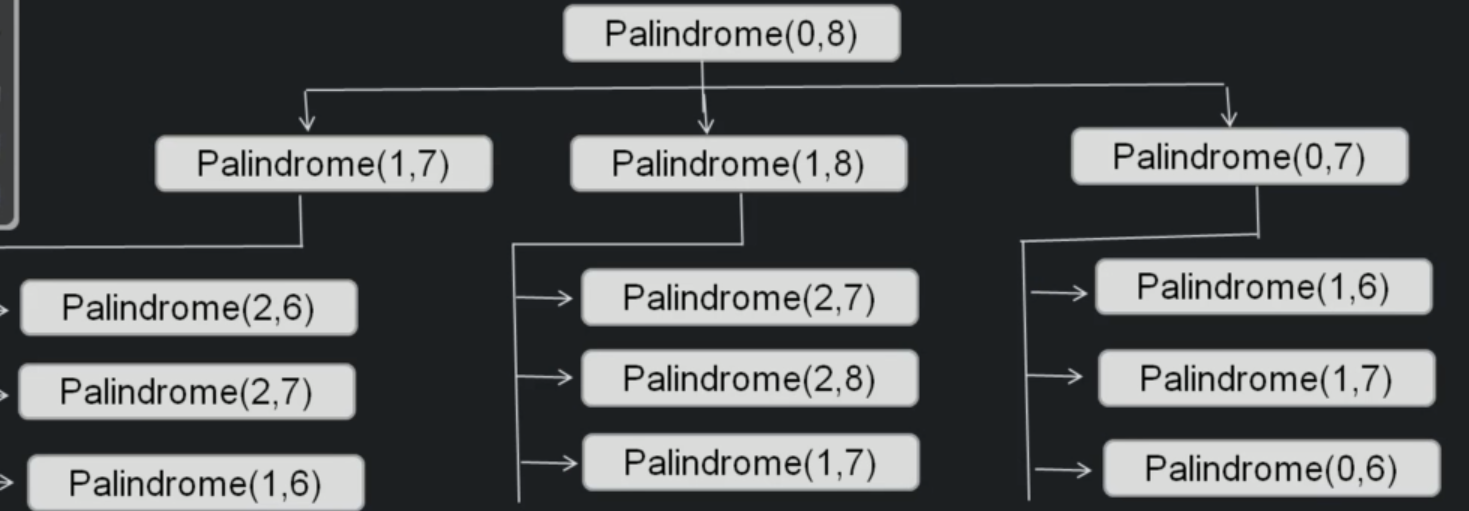Longest palindromic substring¶
int lps_aux(String string, int startIndex, int endIndex)
if startIndex > endIndex // don't need to traverse more than 1/2 string
return 0
if startIndex == endIndex // only one character
return 1
int c1 = 0
if(string.charAt(startIndex) == string.charAt(endIndex))
// add 2 to the existing known palindrome length only if remaining string is a palindrom too
int remainingLength = endIndex - startIndex - 1
if remainingLength == lpsaux(string, startIndex + 1, endIndex - 1)
c1 = remainingLength + 2
int c2 = lps_aux(string, startIndex + 1, endIndex)
int c3 = lps_aux(string, startIndex, endIndex - 1)
return Math.max(c1, c2, c3)

Top down approach¶
int lps_aux(int[][] dp, String string, int startIndex, int endIndex)
if startIndex > endIndex
return 0
if startIndex == endIndex
return 1
if dp[startIndex][endIndex] == null
int c1 = 0
if string.charAt(startIndex == string.charAt(endIndex))
int remainingLength = endIndex - startIndex - 1
if remainingLength == lpsaux(dp, string, startIndex + 1, endIndex - 1)
c1 = remainingLength + 2
int c2 = lps_aux(dp, string, startIndex + 1, endIndex)
int c3 = lps_aux(dp, string, startIndex, endIndex - 1)
dp[startIndex][endIndex] = Math.max(c1,c2,c3)
return dp[startIndex][endIndex]
## Bottom up approach
int findLPSLength(String st)
int [][] dp = new int[st.length][st.length]
for int col = 0; col < st.length; col++
for int row = st.length; row >= 0; row--
if row > col
dp[row][col] = 0
else if row == col
dp[row][col] = 1
else
if st.charAt(row) == st.charAt(col)
int expectedSubstringLength = col - row - 1
int stringLengthToBeUsed = dp[row + 1][col-1] == expectedSubstringLength ? dp[row + 1][col]
else
dp[row][col]= Math.max(dp[row][col - 1], dp[row + 1][col])
return dp[0][st.length - 1]
```